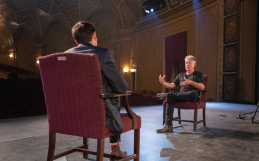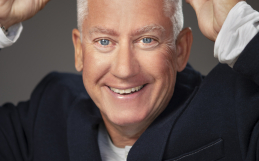Some people believe it is their job to run to their child’s rescue when their child fails or makes a poor choice. Our society has excuses for bad behaviour and a lack of accountability.
REASONS VERSUS EXCUSES
A “reason” explains why something is the way it is, with everyone involved taking accountability for their part in a situation. An excuse is an explanation for why something is the way it is, which always consists of the blame being put on someone or something that isn’t involved in the conversation and cannot share their side of the story. What’s the difference? The accountability.
I’ll give you some examples.
- I was late for school because my alarm clock didn’t go off.
He punched me first, so I punched him in the face.
I have ADHD. That’s why I behave poorly.
I have a learning disability. That’s why I can’t do it!
I can’t exercise because I am too busy.
The list is endless. There are many excuses for failure. If a person were to take accountability for their decisions and their actions, those excuses could be seen as the real reasons for failure, and they would look more like this:
- I was late because I forgot to turn on my alarm clock.
I should have had better self-control and not resort to physical violence.
I struggle with ADHD. I need to develop strategies that will help me improve my self-control.
I need to use my learning disability to my advantage and develop learning strategies that work for me.
I need to get up early to exercise 30 minutes before I start work.
You probably notice a trend here. For every excuse someone can give for failing, a real reason points back to something THEY did or didn’t do.
I’m sharing this information not to make anyone feel bad about their struggles or failures but to help people realize they are the only ones who control their destinies.
Accountability. Until you learn to take it, you’ll be doomed to repeat the same mistakes repeatedly. Don’t be afraid to make mistakes; everyone does, but only those who admit their responsibility for the mistake learn from it. Those are the people who can keep trying and eventually taste success. Those who only want to blame someone else for their failures are dooming themselves to a life full of them.
Brandon O’Dell
O’Dell Restaurant Consulting
I was speaking with a teacher who shared with me some of the struggles they face at her school and how parents run to the rescue of their children. They make excuses for their child’s bad behaviour.
Examples:
BEHAVIOUR – A student was caught smoking in the school bathroom. PARENTAL RESPONSE – Can you prove that school smoking is illegal in Canada?
BEHAVIOUR – A male student called a female student the “C’ word. PARENTAL RESPONSE – It wasn’t the “C” word but the “B” word. The parent brought the word intensity down to what she thought was acceptable.
BEHAVIOUR—A grade 8 student bullied fellow students. He was suspended for his behaviour. PARENTAL RESPONSE—The parent expected the principal to apologize to his students and put an apology on the outdoor school sign.
BEHAVIOUR – A camper locks counsellors in a shed, uses profanity, and physically assaults other campers. PARENTAL RESPONSE – “Your staff don’t know how to handle my son. Other kids must be provoking him. You have a horrible camp!”
There was a situation when a child was brought into the principal’s office with his parents. He was being accused of hurting another child. He admitted it in front of his parents and principal. The parents responded, “No, he didn’t do it! It must have been the other kid being annoying.” THE KID ADMITTED IT!
Parents may want to play the hero, or they can’t accept that their child isn’t perfect. Some parents may feel that their child’s behaviour negatively reflects their parenting.
Here’s the Problem
The more kids are rescued and not made accountable, the more likely they will believe they can do anything to anyone without consequences. This learned behaviour will catch up to them when they become adults. The consequences will be job loss, failed marriages, poor relationships, poor self-esteem, and failure.
Parents: If you want to invest in your child’s future, please teach them that their choices have consequences. Some are good, and some not so much. If they make a bad choice or fail, step up, own it, be accountable, learn something, and then move on. You are not doing them any favours by excusing bad behaviour.











